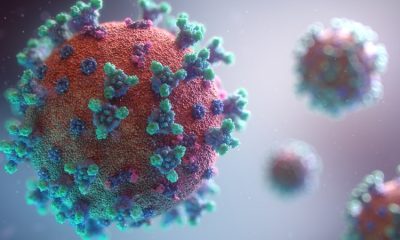Obesity in Seniors: How Maintaining a Healthy Weight Can Help You Live Longer
Obesity is one of America’s largest and best known public health issues. An estimated 60% of the US population is overweight, defined as having a body mass index (BMI) over 26, and 30% are obese, with a BMI of 30 or above.
Seniors are no exception. Over the past thirty years, the number of older adults who are classified as medically obese has doubled. While the majority of seniors in the US are not obese — though many are overweight — obesity’s many health risks become even more of a threat for those who are aging.
Being obese, or even just overweight, can significantly raise your risk of many different kinds of health problems, including hypertension, diabetes, arthritis, cardiovascular disease, and cerebrovascular disease. These often devastating health conditions are already a risk for people over sixty-five, and obesity only makes a person more likely to develop them.

Seniors and the Obesity Crisis: Why Do Older Adults Become Overweight?
What causes obesity? This is a multifaceted question with quite a few answers. It’s true, however, that basic thermodynamics is key. People become overweight by eating too much, and exercising too little. When you take in more energy — in the form of food calories — than your body can use, the leftover energy is stored in the form of fat.
Everyone has some body fat, and that’s completely normal. This is especially true for women. But, too much adipose tissue causes a host of different health problems.
Misinformation and fad diets are everywhere you look, and this can leave people confused and frustrated about how to lose weight — or even if it’s possible to lose weight at all. Fortunately, it’s not as hard as you’d think. It does require long term changes, however.
As we get older, our risk of becoming overweight often increases. Most of us continue to eat approximately the same amount of food throughout our lives. But we might not be as physically active as we were when we were younger. Weight gain also catches up with you slowly over time. Eating just a little too much, over a decade or more, can eventually build up to weight gain in the form of body fat.
Aging also brings reduced secretion of certain hormones, including thyroid hormones. People also lose resistance to leptin, a hormone involved in the production of the physical sensation of hunger. These hormonal factors can cause a person to feel hungrier and eat more, and can also cause food energy to be more likely to be deposited as fat.
It’s important to note that weight isn’t just a matter of genetics. There’s no “fat gene” that magically determines how much you’ll weight throughout most of your life, and genetics don’t doom you to being perpetually overweight. Anyone can lose weight.
However, genes do play a role in your likelihood of becoming overweight at some point in your life. Genes regulating things like whether fat is deposited as visceral fat, or subcutaneous fat, can put you at a higher risk of abdominal obesity that causes health problems.
There are also environmental factors. The way you grow up, and the kind of meals your parents prepare for you, will affect your eating habits later in life. If you live somewhere that isn’t pedestrian or bike friendly, you’re less likely to walk somewhere instead of driving.
Many people become overweight or obese at some point in their lives. And when you’re getting older, a combination of hormonal changes, reduced activity, and a lifetime of poor eating, can start catching up with you and your waistline.
Health Risks from Being Overweight or Obese
Losing weight isn’t about looking a certain way. It’s about being healthy. The fact is, being significantly overweight or obese raises your risk of many different health conditions. Some of the conditions caused or exacerbated by obesity include:
- Diseases of the respiratory system. In people who are obese, the lungs often shrink and become smaller. This is because the extra body weight against the chest wall makes it harder for the muscles to move during breathing. In seniors, these mechanical breathing problems can combine with changes to lung tissue and structure that are caused by normal aging processes, like stiffening of lung tissues and reduced surface area for gas absorption. Among other issues, this can cause sleep apnea, leading to hypoxia that can cause brain damage over time.
- Arthritis. Arthritis is a leading cause of disability in seniors, and obesity can make it worse. High body weight is especially hard on your knees and hip joints, since you’re placing so much extra weight onto them during normal walking and other activities. Fortunately, obesity is one of the easiest arthritis risk factors to treat, and losing weight can improve your arthritis.
- Skin problems. Skin issues are common among both obese populations, and elderly populations. Your skin loses thickness as you age, and being obese can speed up this process. Many seniors who are significantly overweight are prone to skin infections and discomfort, especially in areas like the groin, limbs, and breasts.
- Cardiovascular disease. It’s well known that obesity comes with a significantly higher risk of cardiovascular diseases of all kinds. While the underlying mechanisms aren’t yet fully understood, research has demonstrated that maintaining a healthy weight does reduce your risk of heart attacks, strokes, high blood pressure, and other issues.
Weight Loss for Seniors: Getting to a Healthy BMI
It’s never too late to take action and improve your overall health. Reducing your weight and body fat percentage with a healthier, lower calorie diet, plus regular exercise, is one of the best things you can do to help prevent chronic disease and keep yourself as healthy as possible, for as long as possible.
However, as seniors have many unique health concerns, it’s important to consult with an actual physician before starting any diet or exercise regimen. You need to make sure that your diet is balanced properly. It needs to have below a certain number of calories — usually under 1500 per day — but it also needs the right amounts of the nutrients your body needs. This includes macronutrients like fat, protein, and carbohydrates, as well as micronutrients like vitamins and minerals. Older people may be at a higher risk for vitamin deficiencies due to malabsorption, making it more important to make sure you’re getting the right nutrition.
Your physician can help you find a diet plan that will help you lose body fat, but minimize the loss of lean muscle tissue, which can have adverse health outcomes in older people. In most cases, they’ll be able to refer you to a dietician.
Losing weight can help you live a longer, healthier life. As you get older, the effects of carrying extra weight start affecting your body more and more. Losing the weight can help seniors reduce their risk of cardiovascular disease, stroke, lung problems, and other health issues.
To learn more about senior health, visit Senior Care Center’s blog.






